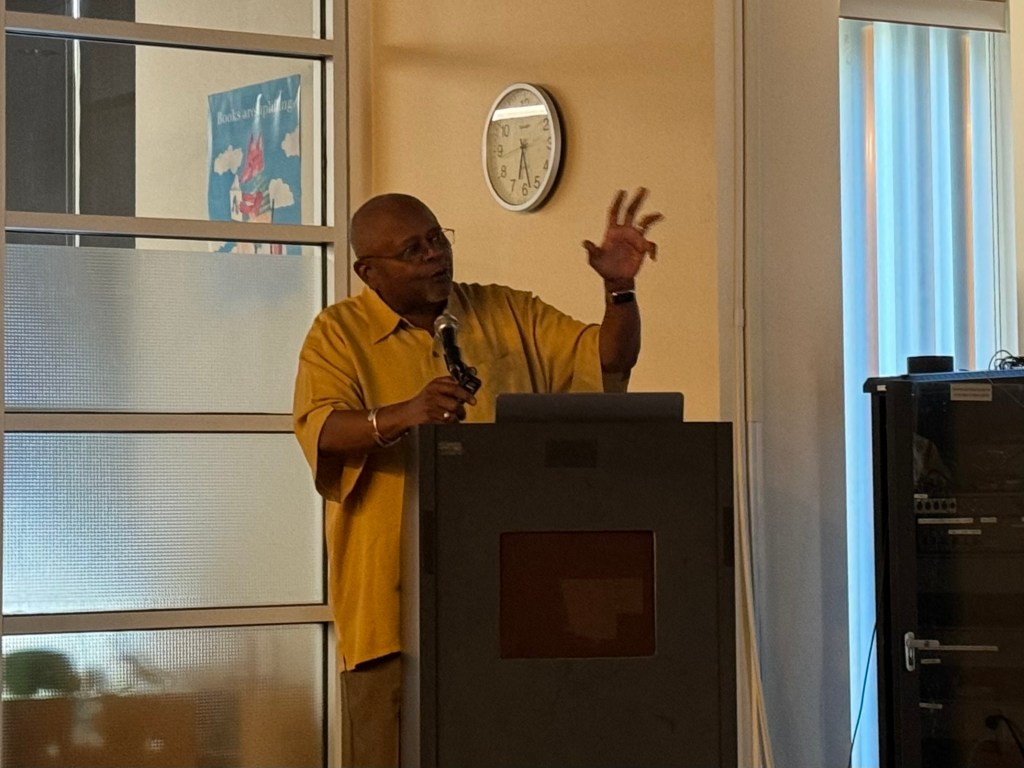A.G. Miller gave a historical presentation about his family’s roots dating back to the Civil War at the Oberlin Public Library on June 20. (John Elrod — The Morning Journal)
The Rev. A.G. Miller, pastor of the Oberlin House of the Lord Fellowship, recently spoke about a piece of his family history and how it relates to Juneteenth.
At a June 20 event at the Oberlin Public Library, Miller told the story of his great-grandfather, Charles Wheeler, who fought in the Civil War with the Missouri-based 62nd U.S. Colored Infantry Regiment.
Part of Miller’s presentation focused on the role Black soldiers played in the war, essentially fighting for their freedom.
Miller recounted how General Wheeler and his regiment fought Confederate soldiers at the Battle of Palmito Ranch in Texas in May 1865, one month after the Confederate surrender. Miller said this was an example of the need for the federal government to enforce the Emancipation Proclamation in Texas, and it was the event that sparked the Juneteenth movement.
Miller also spoke about his great-grandfather’s role in founding Lincoln University in Jefferson City, Missouri, which was founded in 1866 by black Civil War veterans, including members of the 62nd Regiment.
Miller said telling and learning about the history of Juneteenth should always be part of celebrating the holiday.
“I think that’s the most important part,” he said. “We get to celebrate, and I think it’s great that we created this holiday, but I think the majority of people still don’t know what’s behind it.”
Miller said that with the recent censorship-focused political movement in the US, telling Black history is more important than ever.
“Today, we see the banning of books, the denigration of DEI, and the suppression of history. We are doing ourselves a great disservice if we don’t educate ourselves and our children and stand up against those who try to glamorize our history,” he said.
Miller said for people like him who want to dig deep into their family history, it all starts with a conversation.
“Talk to your grandmothers, your grandfathers, your great-uncles, your great-aunts,” he said. “Go back to your home and talk to the elders in your family and ask them, ‘Where are you from? Where is your mother from? Where is your grandma from? Did you grow up in the South or the North?'”
Miller’s wife, Brenda Greer Miller, has also been doing genealogical research to learn more about her family, and she said she never knows what stories she’ll hear from relatives that will help further her research.
“When you talk to people, listen to what they have to say,” she says. “Your stories may help you prove something later. They may not make sense now, but they might say, ‘So-and-so was walking funny.’ You might be able to prove something later that you discovered.”


